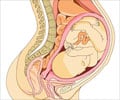Worldwide trends show that legal restriction of abortion has a negative impact since the idea of women resorting to illegal abortion is strongly possible.

According to more recent evidence from official data, Chile displays a continuous decreasing trend of hospital discharges due to complications of abortions suspected to be illegally induced -represented by specific codes of the World Health Organisation classification- at a rate of 2% per year since 2001. In contrast, a decreasing trend was not observed in hospital discharges due to other types of abortion, such as spontaneous abortion or ectopic pregnancies, which have remained constant during the same period. The high quality of Chilean vital statistics indicates these findings are unlikely to be the result of an artifact of the registry system. Rather, a decrease in hospital discharges due to complications from illegal abortion appears to explain virtually all the reduction in hospital discharges due to any type of abortion in Chile during the last decade.
The Chilean experience represents a paradox in our times: even under a less permissive abortion legislation, maternal health indicators can be significantly improved by other factors, including a noteworthy reduction in mortality and morbidity associated to abortion.
In addition to a summary of the previously published research conducted at the MELISA Institute, showing that Chile is a paragon of maternal health in the entire American continent, the editorial article presents previously unpublished data of an ongoing study on the vulnerability profile of 3,134 Chilean women with unplanned pregnancies at risk of induced abortion. This research suggests that women at high risk of abortion display a vulnerability profile marked by coercion and fear, which together account for nearly 70% of the reasons for declaring the intention to terminate the pregnancy. Moreover, data suggest that support programs directed to vulnerable women can prevent most illegal abortions, with an outcome of live birth (with or without adoption) ranging between 69% and 94% depending on the risk group.
In Chile, it is estimated occur 13,000 to 18,000 illegal abortions each year, representing a death risk of 1 in 4 million women of fertile age and leading to about 16% of hospital discharges due to any type of abortion. It is thought that most illegal abortions are provoked through the self-administration of misoprostol. However, several authors agree that the Chilean progress in this matter is likely to be explained by the success of maternal health policy interventions, the access to modern methods of family planning, the increase in women's educational level and, more recently, to the emergence of support programs for vulnerable women with unplanned pregnancies at risk of abortion.
Source-Eurekalert













